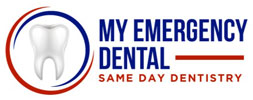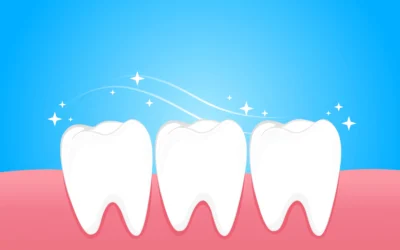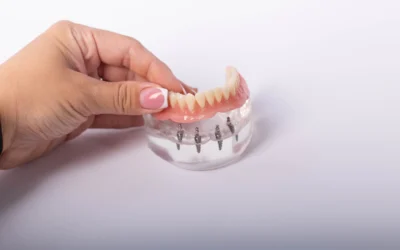There are many opinions about whether chewing gum is healthy for your teeth or not. The truth is it is probably a more complicated topic than you originally thought. This article explores the arguments made by both sides.
Pros
Dentists have said for years that chewing sugar-free gum is beneficial to your smile for the following reasons:
Increased Saliva Production: You produce more saliva when chewing gum. Saliva has several key functions:
- Keeps oral tissues moist so they don’t stick together
- Washes food debris past teeth into the stomach
- Keeps bad bacteria in check
- Helps break down food for digestion
Appetite Alternative: Do you have a sweet tooth? Many individuals find they can assuage that craving by chewing gum instead. The theory is that you’re avoiding high-sugar sweets. Chewing or sucking on sugary sweets bathes your teeth in acid for long periods and promotes cavities and gum disease. Chewing gum delivers some of the same pleasures without the risk of damage to your teeth.
Chewing gum at times when you are tempted to grab and snack but aren’t really hungry can help you limit mindless snacking or comfort eating. Not only will this help you reduce the number of calories you eat in a day, but it will also help improve your food choices. Intentional meals and snacks are more likely to contain healthy food choices than a midnight snack.
Replaces Other Bad Habits: People who quit smoking or drugs often use gum chewing to replace the old habit. Part of why gum is helpful here is that sugar lights up the same area of the brain that narcotics do, easing some of the symptoms.
When breaking bad habits, we’re essentially rewiring our brains. Your brain is used to running on autopilot, performing specific actions in response to particular stimuli. In other words, if you always smoke in your car, getting in your car is a trigger. By chewing gum in the car enough times, you train your brain to expect gum rather than nicotine.
Soothes Heartburn: The burning sensation in your throat that occurs when you have a spicy meal happens because stomach acid is coming back up into your esophagus. Chewing gum increases saliva production in your mouth and sends more of it down your esophagus. This helps to flush the acid back down to your stomach and balance out the acidity bringing you much-needed relief.
Boosts Mood: What do you do when you’re stressed? Do you bite your nails? Drum your fingers on the desk? Click your pen? Squeeze a stress ball? Movement in response to stress is common and can help us deal with the emotion. Chewing gum can be one of your tools to help reduce stress. While your mouth is busy chewing, your mind is also more alert and able to focus on tasks at hand. You might just manage to stay awake through your three o’clock meeting.
Cons
Now, here’s the downside of gum chewing.
Risks of Sugar: It’s clear to see the benefits of kicking a smoking habit and replacing it with chewing gum. However, replacing an old habit with a sugar-laden gum can have oral health consequences. Sugar feeds mouth bacteria which create an acidic environment ripe for tooth decay. Straight sugar also triggers an insulin spike, which signals the body to store carbs as fat. Your waistline will increase as your cravings shift from nicotine to sugar.
Risks to Dental Work: Your natural teeth are no match for a piece of bubble gum. What about that crown you got last week? Or the filling you’ve had since you were 14? Gum can stick to dental appliances, braces, and tooth repairs. It can even pull out fillings and crowns. Some types of gum are more prone to problems. If you have dental work or appliances but still want to chew gum, speak with your dentist and ask for their recommendation.
Risks of Aggravating TMJ: Temporomandibular Jaw Disorder is a condition caused by clenching your jaw, grinding your teeth, misalignment of the jaw, and excessive chewing (especially chewing only on one side, as people tend to do with gum.) The muscles get tight from the temples down the jaw and often develop unevenly. If the jaw shifts a little to one side as you chew, you get uneven wear on the teeth. Poor tooth alignment stresses the wrong part of the tooth and could cause chipping or breakage.
Symptoms of TMJ include headaches, jaw pain, difficulty chewing, and, in extreme cases, your jaw can lock, requiring medical attention. (If you deal with any of these symptoms regularly, it’s time to make a dentist appointment. Your preventive care dentist can give you jaw exercises that alleviate pain and help correct the issue. You can also roll a tennis ball from your temple and down the jaw, focusing on the joint. The massage will help those muscles relax, alleviating symptoms.)
To Chew or Not to Chew
Chewing the right kind of gum can be a handy tool for improving your dental and overall physical health. It can help you overcome bad habits and keep your mouth moist, clean, and healthy. Gum is not the perfect solution, and the recommendation does come with a word of caution. Choose your gum wisely and enjoy the refreshment it brings. As always, make an appointment or visit a Stockbridge dentist at least twice yearly for deep cleanings and to check for cavities.



